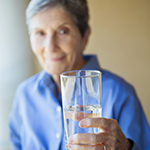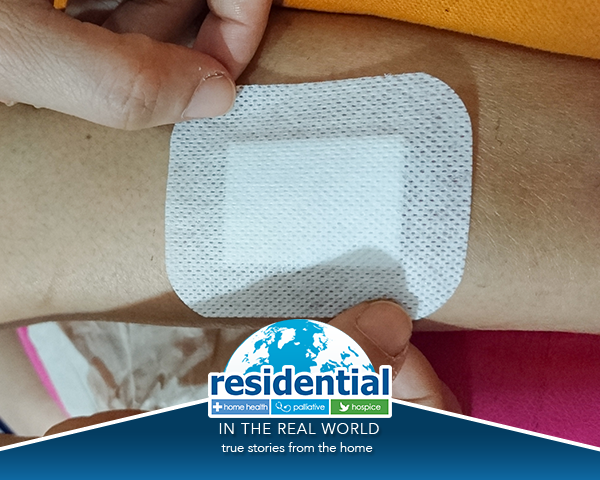
There are many causes of urinary incontinence, a condition which tends to occur as the bladder muscle weakens and has more difficulty holding urine. Common physical changes resulting from the aging process, like reduced mobility, increase the time that it takes for your loved one to get to the bathroom, creating an additional challenge. Similarly, hospitalizations often increase incontinence due to the patient being restricted to bed.


 Though hydration is important for healthy living at any age, seniors are at greater risk of dehydration due to physical and physiological changes that occur during the natural aging process. With potentially dangerous symptoms of dehydration like disorientation, constipation, and low blood pressure, it is important to keep your loved one hydrated.
Though hydration is important for healthy living at any age, seniors are at greater risk of dehydration due to physical and physiological changes that occur during the natural aging process. With potentially dangerous symptoms of dehydration like disorientation, constipation, and low blood pressure, it is important to keep your loved one hydrated. Residential in the Real World
Residential in the Real World